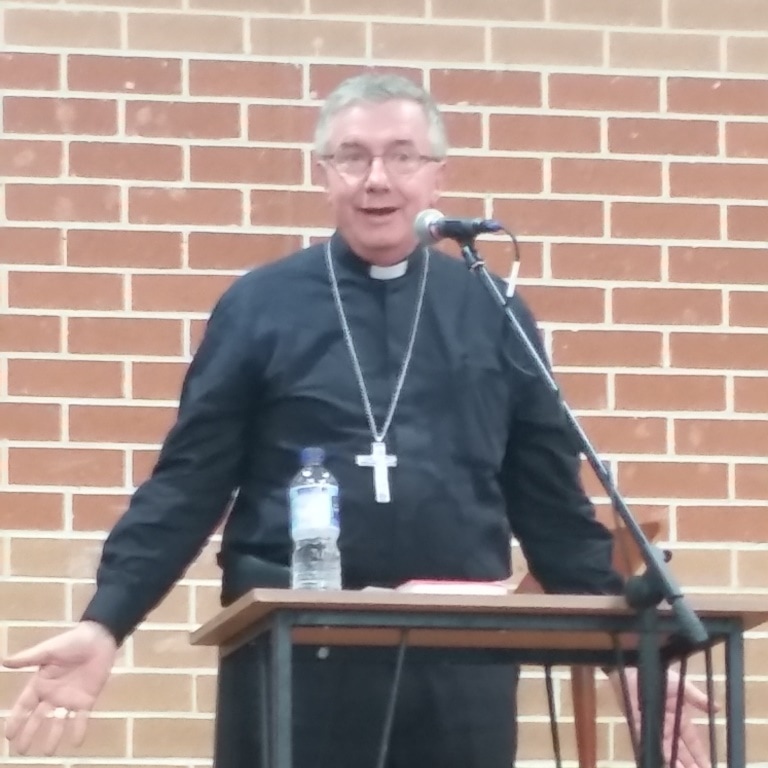I recall pondering this Gospel segment in times past, but I haven’t gone back to find what was written back then. However I do remember that no one knows where this mountain location is in Galilee and that it is the same location that Jesus and the Apostles withdrew to when He wanted to teach them privately.
It seems fitting that Jesus wanted them to re-gather in this place of special shared memories to give them the sending forth that constitutes them as Apostles. They are the ones sent out by Jesus with the primacy to continue His ministry.
Wikipedia says this: An apostle, in its most literal sense, is an emissary, from Greek ἀπόστολος, literally "one who is sent off", from the verb ἀποστέλλειν, "to send off". The purpose of such sending off is usually to convey a message, and thus "messenger" is a common alternative translation; other common translations include "ambassador" and "envoy".
From that angle, the privacy of this world changing event makes sense.
All of us who through their response to God have become disciples of the Lord Jesus, and who have been baptized in the name of the Father, and of the Son, and of the Holy Spirt, share in their ongoing mission.
Have you wondered ‘But why did some hesitate?’
The answer could lie in the profound change in their relationship with Jesus. Before the Passion, Jesus was teacher, companion, confidant, friend, preacher, miracle worker and they had gradually come to accept that He was indeed Son of God. But it was the kind of acceptance based on faith. When He showed Himself to them glorified and risen, this was an experience of His power and majesty as Son of God – a whole new ballgame, as we might say.
It is one thing to accept a truth, and quite another to be confronted with the reality of that truth.
In this meeting between Jesus and His Apostles on the hidden mountain, it is quite likely that Jesus displayed a level of authority, kingship, majesty, power and victory that was well beyond anything they had previously experienced when He had shown Himself risen to them.
Most of them had the usual response to a manifest presence of God: flat, face down on the ground in worship.
But the rest were in ‘stunned mullet’ mode, or frozen because they no longer knew how they should relate to Jesus, or how He wanted them to relate to Him.
He is Lord of the universe, and yet He invites a relationship that is closer than a spouse.
One of those both/and things that are so paradoxical.
And what does Jesus do? He makes the first move, He comes up to them, He doesn’t berate them, and He speaks to them. He meets them where they are at.
Then He speaks those words that have resounded through the centuries:
“All authority in heaven and on earth has been given to Me. Go, therefore, make disciples of all nations; baptise them in the name of the Father and of the Son and of the Holy Spirit, and teach them to observe all the commands I gave you. And look, I am with you always; yes, to the end of time.”
Here is the purpose of their sending forth as Apostles, to bring everyone into the profoundly personal ongoing relationship that God, Father, Son, and Holy Spirit, wishes to have with everyone, and through that relationship profound unity and love with each other.
In His goodness, may the Lord Jesus enable us to come to deeper understanding of His total authority over everything, grounded not only in faith, but in the experience of His divine presence, so that we may come to that unlimited trust in Him which dispels all fear and sets us confidently on this mission to go, disciple, baptize and teach. Amen.


 RSS Feed
RSS Feed